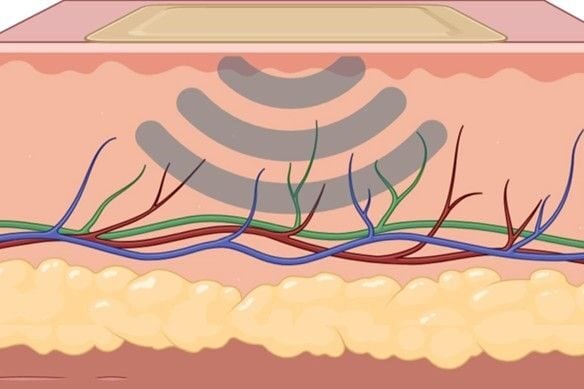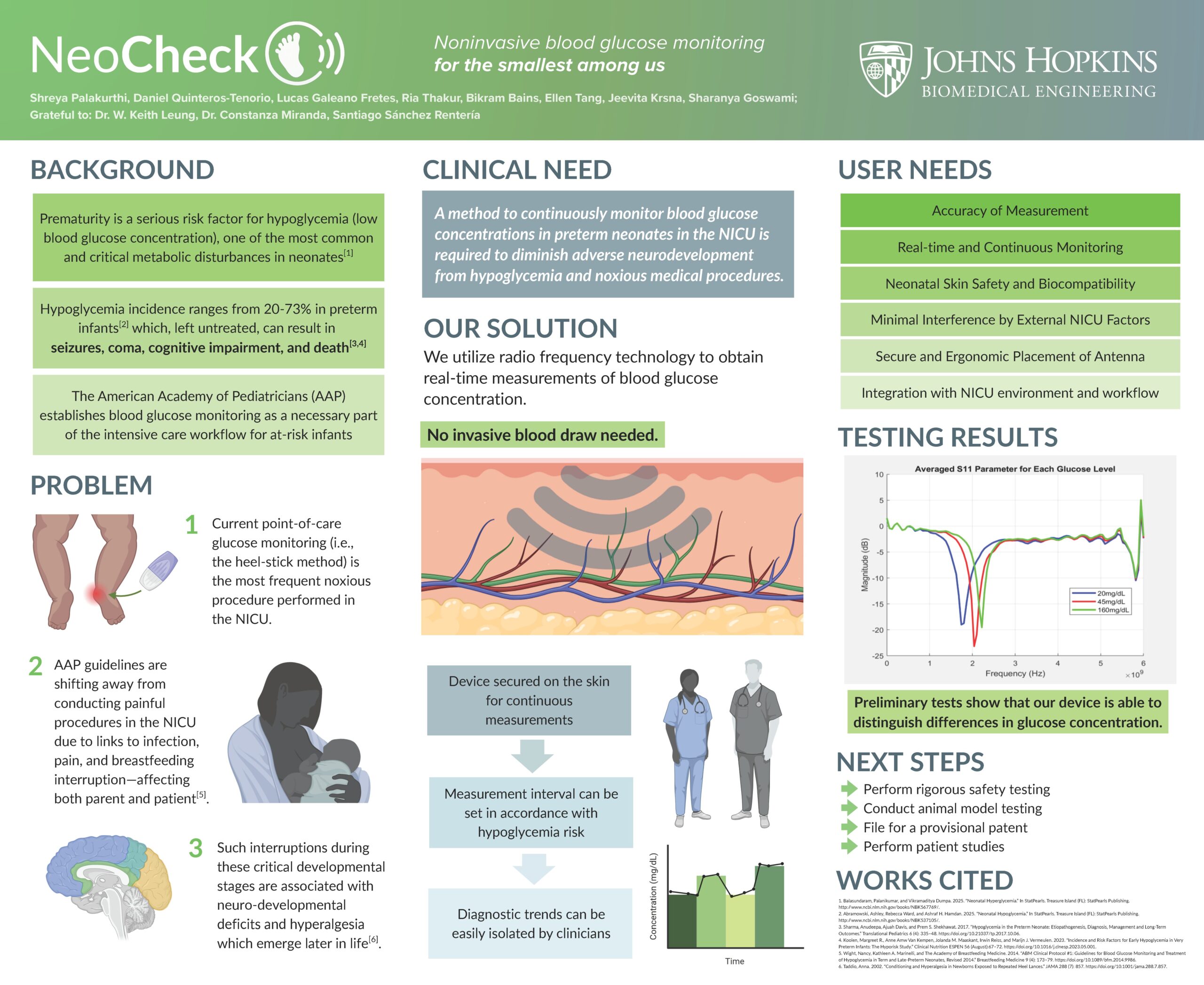
Create
Design Project Gallery
NeoCheck: Noninvasive Blood Glucose Monitoring in Neonates
- Program: Biomedical Engineering
- Course: EN.580.X12 BME Design Team
- Year: 2025
Project Description:
Prematurity is a serious risk factor for hypoglycemia (low blood glucose concentration), one of the most common and critical metabolic disturbances in neonates. Hypoglycemia incidence ranges from 20-73% in preterm infants, and if left untreated can result in seizures, coma, cognitive impairment, and death. The American Academy of Pediatricians (AAP) establishes blood glucose monitoring as a necessary component of the intensive care workflow for at-risk infants. Current point-of-care glucose monitoring (i.e., the heel-stick method) is the most frequent noxious procedure performed in the NICU. AAP guidelines are shifting away from conducting painful procedures in the NICU due to links to infection, pain, and breastfeeding interruption. Interruptions that occur during these critical developmental stages are associated with long-lasting neurodevelopmental deficits and hyperalgesia. Thus, a method to continuously monitor blood glucose concentrations in preterm neonates in the NICU is required to diminish adverse neurodevelopment from hypoglycemia and noxious medical procedures.
Project Photo:
NeoCheck is a team of undergraduate biomedical engineers that aims to create a noninvasive blood glucose monitoring device for use on hypoglycemic neonates in the NICU. This device will use radio frequency technology to take continuous measurements without the need for a noxious heel prick procedure.
Student Team Members
- Shreya Palakurthi
- Bikram Bains
- Daniel Quinteros-Tenorio
- Sharanya Goswami
- Jeevita Krsna
- Ellen Tang
- Lucas Galeano Fretes
- Ria Thakur


